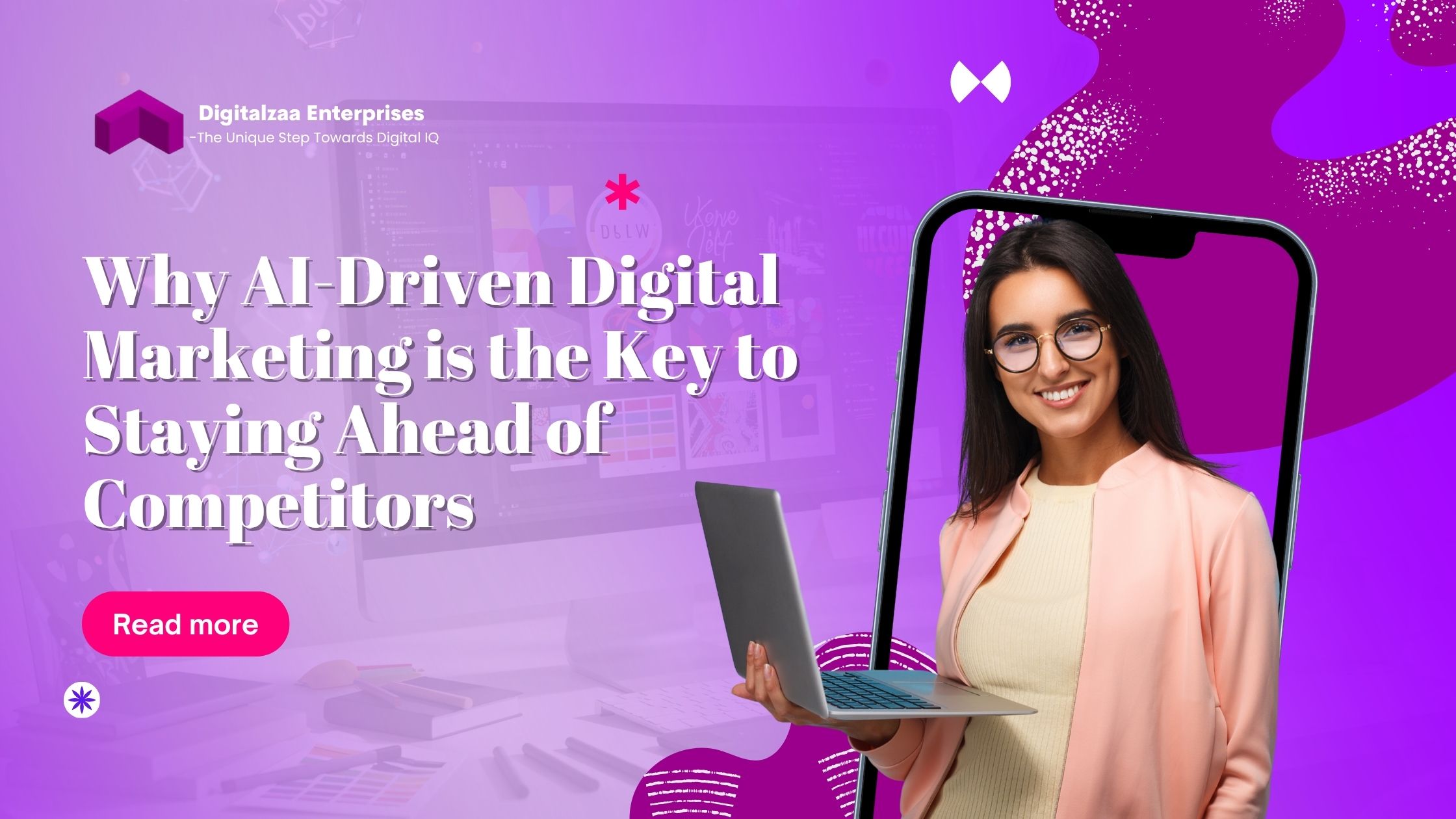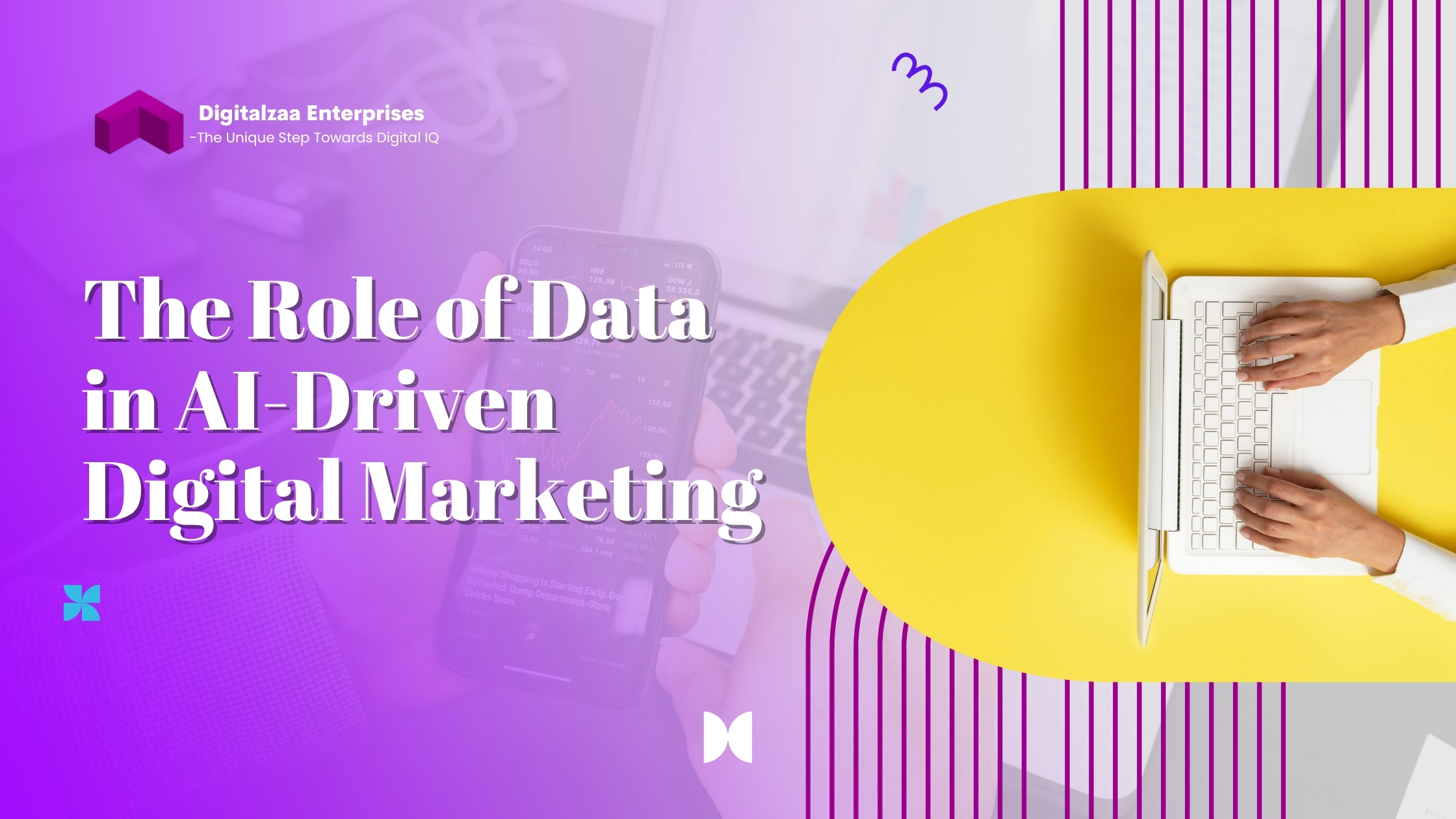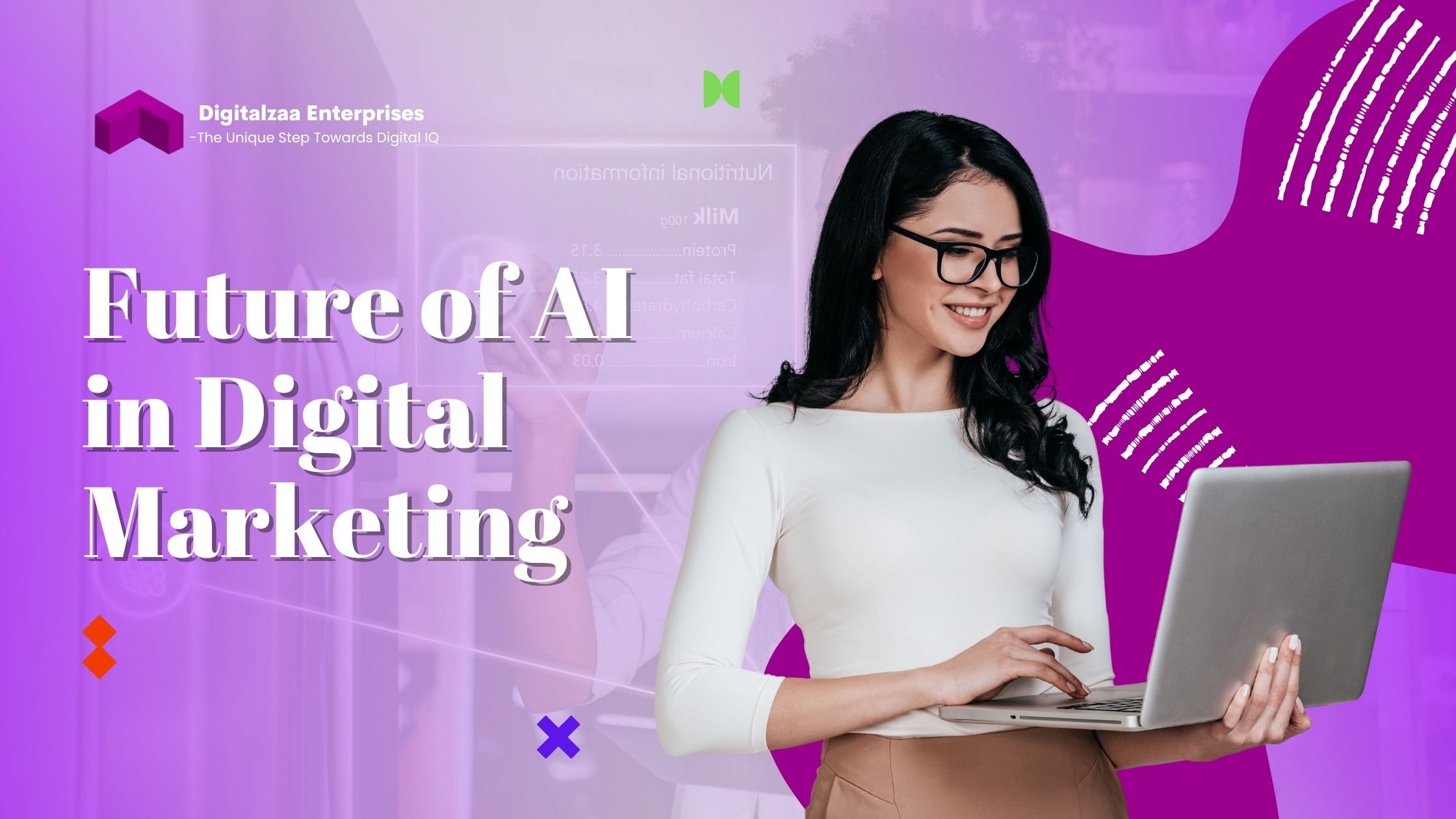Why AI-Driven Digital Marketing is the Key to Staying Ahead of Competitors

In today’s competitive online world, every business wants to stand out and capture the attention of its audience. But with changing customer behavior and a fast-paced digital landscape, traditional marketing strategies alone no longer guarantee success. This is where AI-Driven Digital Marketing takes the lead — transforming how brands reach, engage, and convert customers.
By integrating Artificial Intelligence in Marketing, companies can analyze massive amounts of data, predict consumer behavior, and personalize user experiences with incredible precision. In short, AI is not just reshaping marketing — it’s redefining how businesses grow and stay ahead of competitors.
1. The Shift from Traditional to AI-Driven Digital Marketing
A decade ago, marketers relied heavily on manual data analysis, gut feelings, and basic tools for decision-making. While those strategies worked to some extent, they lacked precision and adaptability.
The evolution of AI-Driven Digital Marketing has completely changed this scenario. Today, algorithms can analyze billions of data points, track user behavior, and create accurate predictions about what customers want — even before they realize it themselves.
This automation and intelligence allow marketers to:
- Personalize campaigns in real-time.
- Improve ROI through optimized ad spending.
- Understand user intent and sentiment more deeply.
- Automate repetitive marketing processes efficiently.
By shifting to AI-powered systems, brands gain a competitive edge through faster decision-making and more accurate insights.
2. Understanding Artificial Intelligence in Marketing
Artificial Intelligence in Marketing refers to using machine learning, data analytics, and automation tools to streamline marketing efforts and enhance customer engagement.
It involves technologies like:
- Natural Language Processing (NLP) for understanding human communication.
- Predictive Analytics to forecast consumer trends.
- Chatbots and Virtual Assistants to offer 24/7 support.
- Computer Vision for ad targeting and visual content analysis.
The result? Marketing campaigns that are smarter, more efficient, and far more personalized than ever before.
For example, AI can analyze past customer interactions to recommend personalized products, predict which users are most likely to convert, and optimize ad performance based on real-time engagement data.

3. The Role of Data in AI-Driven Digital Marketing
At the core of AI-Driven Digital Marketing lies data. Every click, view, and purchase generates valuable insights. AI collects and interprets this data to deliver meaningful patterns.
Here’s how AI enhances data utilization in marketing:
- Audience Segmentation: AI classifies audiences based on age, interests, purchase behavior, and more.
- Sentiment Analysis: It detects emotional tone in user reviews and social media comments.
- Predictive Modeling: AI forecasts future buying trends and user needs.
- Behavioral Tracking: It monitors website interactions to personalize future content and offers.
By leveraging these capabilities, marketers can create data-backed strategies that improve engagement and customer satisfaction.
4. How AI Marketing Tools are Transforming the Industry
AI Marketing Tools have become the backbone of modern marketing strategies. From social media management to email personalization, these tools help marketers execute smarter, faster, and more impactful campaigns.
Popular AI Marketing Tools Include:
- HubSpot: For automated customer relationship management and lead nurturing.
- Google Analytics with AI Insights: For real-time data interpretation.
- ChatGPT: For generating human-like content, blogs, and product descriptions.
- Jasper AI: For automated content writing and SEO optimization.
- Hootsuite Insights: For AI-powered social media sentiment tracking.
These AI Marketing Tools reduce manual effort, eliminate guesswork, and provide marketers with the information they need to make accurate, data-driven decisions.
5. Personalization: The Core Advantage of AI
Consumers today expect personalized experiences — from product recommendations to email marketing. With Artificial Intelligence in Marketing, personalization has reached a new level.
AI can analyze user data in real-time to tailor recommendations, content, and even advertisements. For instance:
- E-commerce sites use AI to suggest items based on browsing history.
- Email campaigns are personalized to include names, preferences, and interests.
- Streaming services like Netflix or Spotify recommend content suited to each user’s taste.
This form of intelligent personalization builds stronger customer relationships, enhances loyalty, and improves conversion rates — all vital for staying ahead of competitors.
6. Predictive Analytics: Staying One Step Ahead
Predictive analytics uses AI algorithms to forecast future behavior based on historical data.
In AI-Driven Digital Marketing, this means:
- Identifying which leads are more likely to convert.
- Determining the best time to send emails or launch ads.
- Predicting seasonal demand for products or services.
- Forecasting marketing ROI before campaign launch.
This forward-thinking approach helps marketers allocate resources effectively, reduce wasted effort, and seize new opportunities before competitors do.
7. AI and Customer Engagement
Customer engagement is no longer limited to manual interaction. AI now powers virtual assistants, chatbots, and automated customer service systems that deliver 24/7 support.
Key Benefits:
- Instant response to customer queries.
- Personalized suggestions during live interactions.
- Multilingual support for global reach.
- Improved lead conversion through intelligent follow-ups.
These AI-driven engagement systems allow brands to remain accessible and responsive — building trust and reliability among their target audience.
8. Enhanced Ad Targeting and Campaign Optimization
AI doesn’t just analyze data — it acts on it. In advertising, Artificial Intelligence in Marketing helps target users more effectively by understanding intent and interest.
AI tools can:
- Identify high-value customers.
- Automatically adjust ad placements for better performance.
- Optimize ad spend across multiple platforms like Google Ads and Meta Ads.
- A/B test campaigns faster and more accurately than manual testing.
With such smart automation, businesses can reduce cost-per-click, increase conversions, and achieve superior campaign performance.
9. Content Creation Powered by AI
One of the most transformative applications of AI-Driven Digital Marketing lies in content generation.
AI-powered content creation tools like ChatGPT and Jasper use advanced language models to produce human-like text in seconds. This allows marketers to:
- Generate high-quality blog posts, product descriptions, and ads.
- Optimize content for SEO with the right keyword placement.
- Analyze content engagement metrics for continuous improvement.
By using AI Marketing Tools for content, marketers can maintain consistency, improve efficiency, and focus on creative strategy rather than repetitive writing.
10. Data Privacy and Ethical Considerations
While AI-Driven Digital Marketing offers unmatched benefits, it also comes with responsibilities. Companies must ensure ethical use of data and comply with privacy laws like GDPR and CCPA.
Transparency in how AI algorithms use and store consumer data builds trust. Ethical marketing practices, combined with AI efficiency, create a sustainable and customer-friendly digital environment.
11. Integrating AI with Existing Digital Marketing Strategies
Integrating AI into your Digital Marketing Strategies doesn’t mean replacing humans — it means empowering them.
Here’s how AI enhances traditional marketing:
- SEO Optimization: AI tools analyze search patterns to improve rankings.
- Email Marketing: Automated A/B testing optimizes subject lines and content.
- Social Media: AI monitors engagement and suggests ideal posting times.
- Customer Retention: AI predicts churn and suggests re-engagement offers.
By blending human creativity with AI intelligence, companies can build marketing ecosystems that are both efficient and emotionally engaging.
12. Case Studies: How AI Gives Companies a Competitive Edge
- Amazon: Amazon uses Artificial Intelligence in Marketing to recommend products, predict demand, and set dynamic pricing. This personalization leads to higher conversions and customer satisfaction.
- Coca-Cola: Coca-Cola uses AI to analyze consumer data and create targeted campaigns. AI-driven analytics help the brand determine what type of content resonates best with different demographics.
- Netflix: Netflix relies heavily on AI Marketing Tools to recommend shows and films. Over 80% of content watched on Netflix comes from AI-based recommendations — a testament to AI’s marketing power.
These examples clearly show how AI-based marketing strategies create measurable business growth.

13. Future of AI in Digital Marketing
As AI technology continues to evolve, we can expect even more advanced marketing applications.
Emerging trends include:
- Voice Search Optimization: AI will enhance SEO for voice-based queries.
- Emotion AI: Systems that analyze facial expressions to gauge customer emotions.
- AI-Generated Visuals: Tools that create customized videos and graphics for ad campaigns.
- Hyper-Personalization: Tailoring experiences based on micro-level data points.
The future of AI-Driven Digital Marketing lies in deep personalization, real-time automation, and data-backed storytelling — all contributing to superior customer engagement and business growth.
14. Challenges in Implementing AI-Driven Digital Marketing
While the benefits are immense, businesses must overcome a few challenges:
- High initial investment in AI infrastructure.
- Lack of skilled professionals to interpret AI data.
- Ethical concerns regarding data collection and bias.
- Integration issues with existing marketing systems.
However, with proper planning and gradual implementation, these challenges can be managed effectively.
Conclusion
The digital world is evolving rapidly, and businesses that fail to adapt risk being left behind. AI-Driven Digital Marketing isn’t just a trend — it’s the foundation of the future marketing landscape.
By harnessing Artificial Intelligence in Marketing, companies can create personalized experiences, optimize resources, and predict customer needs with unmatched accuracy. Combined with innovative AI Marketing Tools and smart Digital Marketing Strategies, AI empowers brands to outperform competitors and build lasting customer loyalty.
To stay ahead in this ever-changing digital battlefield, the question isn’t “Should we use AI?” but “How fast can we adopt it?”


